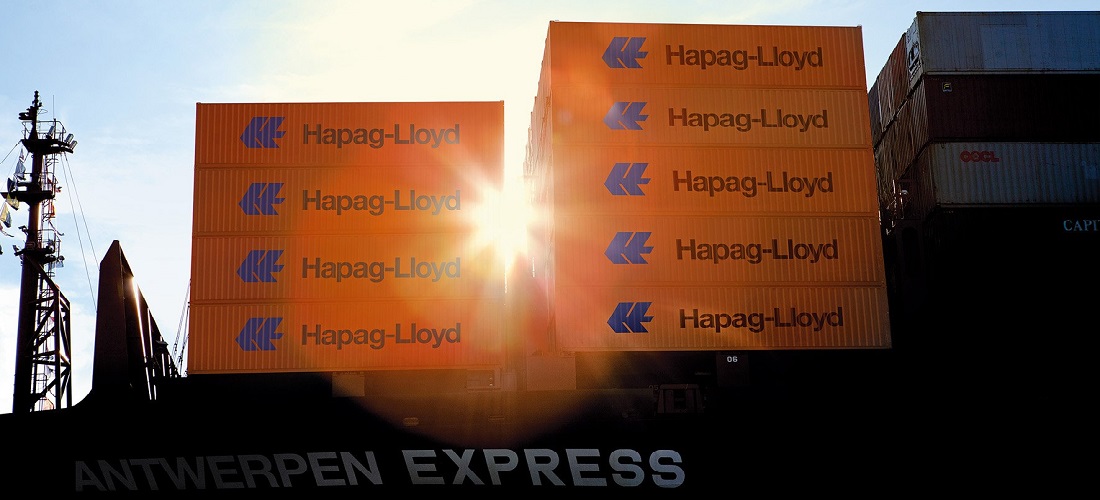
Hapag-Lloyd announces its Strategy 2030
Apr, 18, 2024 Posted by Sylvia SchandertWeek 202416
Hapag-Lloyd has unveiled its Strategy 2030, a comprehensive roadmap charting the course for the company’s pursuit in quality leadership, sustainability, innovation, and operational efficiency in a quickly evolving maritime industry.
Building on the momentum of its Strategy 2023 which, according to the company, cemented Hapag-Lloyd’s reputation “as a customer centric carrier”, Strategy 2030 is built on five core pillars.
The first, Pure Pay Plus, will see Hapag-Lloyd continue to invest in its fleet and service network to further strengthen its core liner business while expanding its terminal portfolio, backed by a new terminal and infrastructure division.
Additionally, the carrier aims to increase its share of inland transport in direct support of its core business.
The second pillar aims to cement Hapag-Lloyd’s position among the top five global container lines and reinforce its presence in key markets including Africa, India, Southeast Asia and the Pacific trade by growing above market.
Thirdly, Hapag-Lloyd has noted its plans to “double down” on its quality strategy, aiming for on on-time delivery rate of more than 80% and strengthening operational excellence, customer care and ease of doing business.
It is expected that the Gemini Cooperation with Maersk, due to come into effect in 2025, will be an important step towards this goal in combination with the strengthening of internal processes.
Sustainability drives Hapag-Lloyd’s fourth pillar of the 2030 Strategy as the company commits to reducing absolute greenhouse gas emissions by around one third by 2030 and achieving net-zero fleet operations by 2045.
This will be achieved through a range of measures, including fleet modernisation, new propulsion technologies, and the use of alternative fuels.
Recently the carrier entered into a partnership agreement with Seaspan Corporation to retrofit and convert five 10,100 teu container ships powered by conventional MAN S90 engines to dual-fuel engines capable of operating methanol.
Following the engine retrofit, the vessels will continue to be on long-term charter from Seaspan to Hapag-Lloyd.
Dr Maximilan Rothkopf, Hapag-Lloyd’s COO, noted that the project was a step further in the company’s ambitious sustainability agenda.
“By enabling these vessels to use green methanol as of 2026, we will meet our customers’ growing demand for green transportation solutions,” he added.
Starting in the first quarter of 2026, the retrofit is expected to take approximately 80-90 days per vessel.
Total investment is estimated at around US$120m for the five units scheduled for retrofits, which are as follows: the Seaspan Amazon, Seaspan Ganges, Seaspan Thames, Seaspan Yangtze and Seaspan Zambezi.
Torsten Holst Pederson, COO of Seaspan, added: “Collaboration between strong and like-minded partners, Hapag-Lloyd and Seaspan, drives innovation.
“Retrofitting must be an integral part of the strategy if the container shipping industry wants to deliver on its decarbonisation targets.”
Finally, Hapag-Lloyd’s last pillar includes its plans to remain an industry frontrunner by leveraging cutting-edge IT solutions, increasing productivity, maintaining a razor-sharp focus on performance and cost optimisation, developing the workforce, and attracting talents.
Rolf Habben-Jansen, CEO of Hapag-Lloyd, said: “We operate in a very dynamic industry marked by shifting customer needs, so a resilient strategy is essential.
“Strategy 2030 positions us to thrive and lead as one of the top global container lines. With it, we will not only enhance the value we deliver to our customers and partners, but also make a meaningful contribution to the decarbonisation of our industry. It is our most ambitious strategy to date.”
Source: Container Mag
-
Meat
Jul, 10, 2023
0
Paraguay multiplied pork export in first semester
-
Steel and Aluminium
Oct, 24, 2024
0
Brazil raises import duty on 11 steel products
-
Meat
Aug, 06, 2024
0
Uruguay: Beef exports to China the lowest since 2016
-
Fruit
Jun, 07, 2021
0
Argentina sends first 5,500 tons of citrus to Russia



